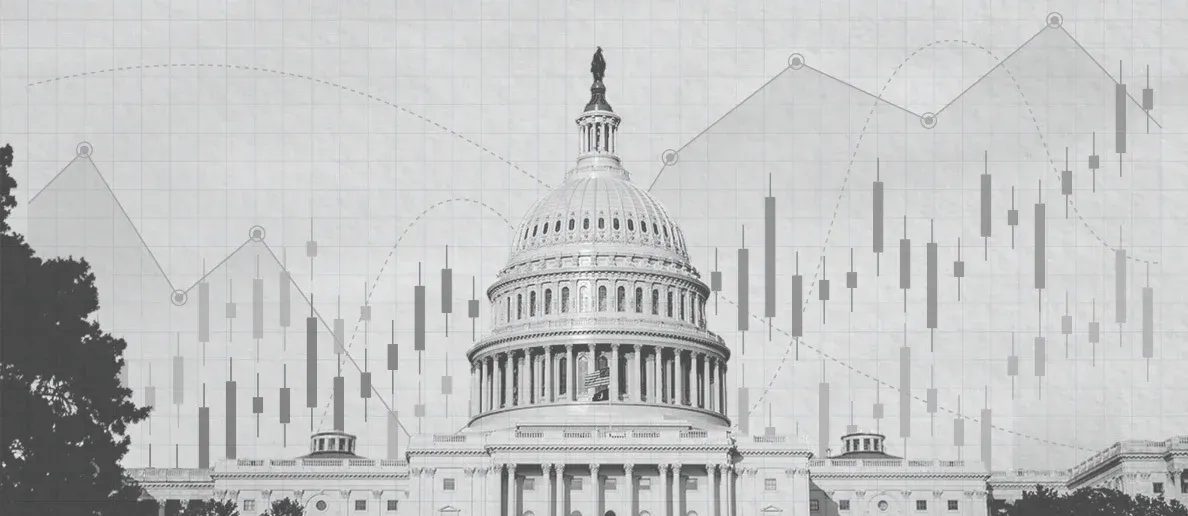A Case for Congressional Wealth


At 2iQ Research, creator of Capitol Trades, we believe in market transparency and efficient market access for all.
Since our inception two decades ago, we’ve been collecting, validating, and structuring data on insider transactions, share buybacks, and short interest, enabling investors to gain a clearer view of activity within the world’s publicly-listed companies.
In August 2021, 2iQ Research launched Capitol Trades, a free-to-use platform summarizing the stock trading activity of US politicians. In the time since we launched this service, the debate around the ethics of congressional trading has reached all-time highs in the media and on Capitol Hill.
In light of recently proposed bans on the stock ownership of members of Congress, we believe further consideration should be taken. Restricting access to capital markets works against the public’s interest in attracting the best, most talented people to the legislature. The economic prosperity of the individual should be protected, and existing laws provide the framework to do so.
Calls for elected members of Congress to be banned from the ownership of individual stocks have grown over the past year. Bi-partisan support of proposed ethics reform, which is not uncommon in a midterm election year, calls for members of Congress to put their financial holdings into a blind trust or broad-based, diversified indices or mutual funds.
Proponents of the ban cite that too great a level of moral hazard exists in political life. A belief that access to information potentially corrupts market actors, willing to sacrifice their careers for increases in personal wealth. Such views demonstrate a distrust in the checks and balances of the political system and the regulatory agencies tasked with upholding insider trading laws.
Stock Act vs Insider Transaction Reports
Currently, members of Congress must disclose all financial interests, which include stocks – the main focus of potential legislation. There remains little doubt that politicians, especially that privy to particularly economically influential committees, face a greater moral hazard than the average retail investor.
Is the level of moral hazard any greater than that of a corporate executive, investment banker, or federal judge?
In such positions of power, a complete ban appeals to many, but we argue goes too far. Positions of power do not bar individuals from profiting from their knowledge and expertise, so long as such decisions are made from open and public information.
Countless examples exist across the private sector, with C-Suite executives trading on acute expertise and knowledge gained through their positions. A ban on individual stock ownership for politicians, therefore, appears rooted in an ethical argument that elected officials should be held to a unique set of laws, particular to their office.
One group is elected officials, the other private sector experts, but arguably this difference exists only in the public eye, for both remain American citizens subject to equal laws. If we are to bar members of Congress from trading, then the opinion that others, particularly federal judges, should face barring as well. Federal judges recently made headlines when over 130 were found to have “violated U.S. law and judicial ethics by overseeing court cases involving companies in which they or their family-owned stock,” per the Wall Street Journal. A ban on those who legislate our laws would naturally need to extend to those who rule on our laws.
Perhaps trust has been lost to unrecoverable standards; perhaps the American public has gained insight into the trades of politicians and taken issue with them. Regardless, this moment marks a new cultural point in how we connect the private financial lives of politicians to their ability to serve their country.
How much do politicians benefit from trading?
Before the STOCK Act of 2012, politicians could legally trade on their private knowledge. Up until that point, the belief that politicians were unethically gaining any advantage on the general market wasn’t common.
It appears the STOCK Act is successfully deterring the insider trading behavior the act was intended to. For those that may disagree, see former congressman Chris Collins’ 26-month jail sentence.
Before considering alternatives, we must assess whether politicians generate substantial gains because of their position. One Dartmouth Study believes they do not. Based on data from 2012 to 2020, the longitudinal study concluded that “the buys and sells have the same pattern; they underperform slightly for the first few months and then outperform the market after 150 days by less than 1 percent, which is not statistically significant.”
Stock picking remains a very tricky business, far from a predictable science, and politicians – despite their alleged insider trading – do not perform much better than the standard market, if at all.
As for supposed conflicts that are rooted in special committees, the Dartmouth study likewise found no strong correlation, citing that “most of the trades do not reflect a match between company industry and committee membership, as only 6.5% of all trades have a match.”
What would be the best solution?
We cannot be too quick to assume that because a politician made a trade the decision was because of private insider information.
That said, certain one-off selling events, such as the 2020 fire sales of members of Congress before COVID-19 caused havoc in markets, deserve particular attention. Still, some politicians who sold stocks at this time, such as Dianne Feinstein, already had their assets in a blind trust.
While we argue that an outright ban is not warranted, increased restrictions to tighten up reporting and regulatory requirements would allow for greater transparency and assist in generating greater public trust. The current parameters under which members of Congress may trade must be adjusted to reflect the private sector more closely.
For example, the reporting period for politicians to report their stock trades is 45 days, while corporate insiders of publicly listed companies are required to report their trades within 2 days – a staggering difference. The issue remains not that elected officials are allowed to trade, but that the regulations around their trading are unique, and of a certain privilege that leads70% of voters to believe members of Congress should not be allowed to trade stocks, according to Business Insider.
Politicians can argue that they are too busy for such a short reporting period, but few would believe they are significantly busier than the CEOs of publicly listed companies. Plus, if they can spend time researching companies and making trades with their wealth, can they not also find the time to properly report their transactions? A shortened reporting form and knowledge of what legislative committee members sit on will not only improve transparency but fast-track the watchdog efforts of the SEC and the general public.
Politicians, whose average term is 8.9 years for the House of Representatives and 11 years for the Senate, receive an annual salary of $174,000. And while many boast net worth figures far above what that annual salary could achieve, many also enter politics with personal wealth earned before becoming legislators. One must question whether banning stock trades by members and their families – as most proposed bans do – poses a negative externality of deterring the brightest, most capable individuals from public service.
Ultimately, the proposed restrictions on congressional stock trading will deter a large number of prospective politicians and lawmakers. Going into political office already presents several personal decisions for the individual and their family.
Increasing the risk of political life further, when an existing system could be successfully altered, is not the solution. Instead, tighten regulations to allow for more swift punishment and timely flagging of suspicious activity.
Public markets are exactly that, public, and should be left intact for all. Limiting the trading activity of politicians because of their knowledge of acute, but often publicly accessible information goes beyond what is suitable when effectively implemented regulatory requirements could be all that is required.